Authentic Zanzibar Spice Farm Tour: What to Know Before You Go
Zanzibar is known worldwide as the “Spice Island”, and for good reason. The island’s rich soil and tropical climate make it a paradise for growing a variety of aromatic spices that have shaped its culture, cuisine, and history. Taking an authentic Zanzibar spice farm tour offers a unique opportunity to walk through lush plantations, smell the fragrances of fresh spices, and learn how these natural treasures are cultivated and used.
If you’re planning to visit Zanzibar, a spice farm tour should be at the top of your list. Here’s everything you need to know before you go — from what to expect, when to visit, what to wear, and why this experience is unlike anything else on the island.
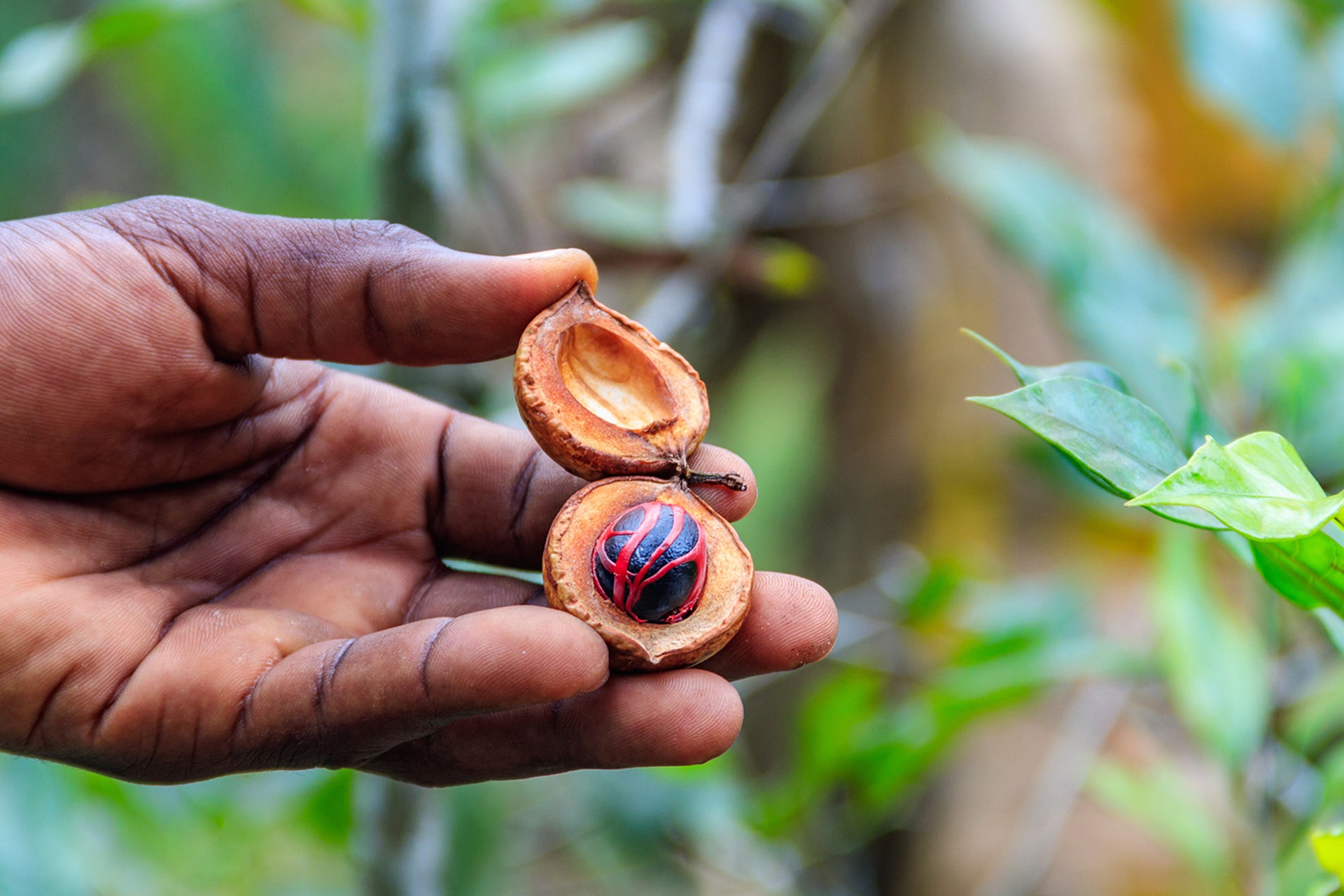
Why Choose an Authentic Zanzibar Spice Farm Tour
Not all spice tours are created equal. Some are purely commercial, while others focus on sustainability, local culture, and education. Choosing an authentic Zanzibar spice farm tour means supporting small local farmers and experiencing the real story behind Zanzibar’s world-famous spices.
At an authentic farm, you’ll walk through fields of cinnamon, cloves, nutmeg, turmeric, cardamom, vanilla, and black pepper. Guides — often locals born and raised in the area — will show you how each plant grows and how the spices are harvested by hand.
Moreover, you’ll have the chance to touch, smell, and even taste the spices directly from the plants. Many visitors describe this as a “five-senses experience,” where every step reveals a new aroma and every corner holds a new surprise.
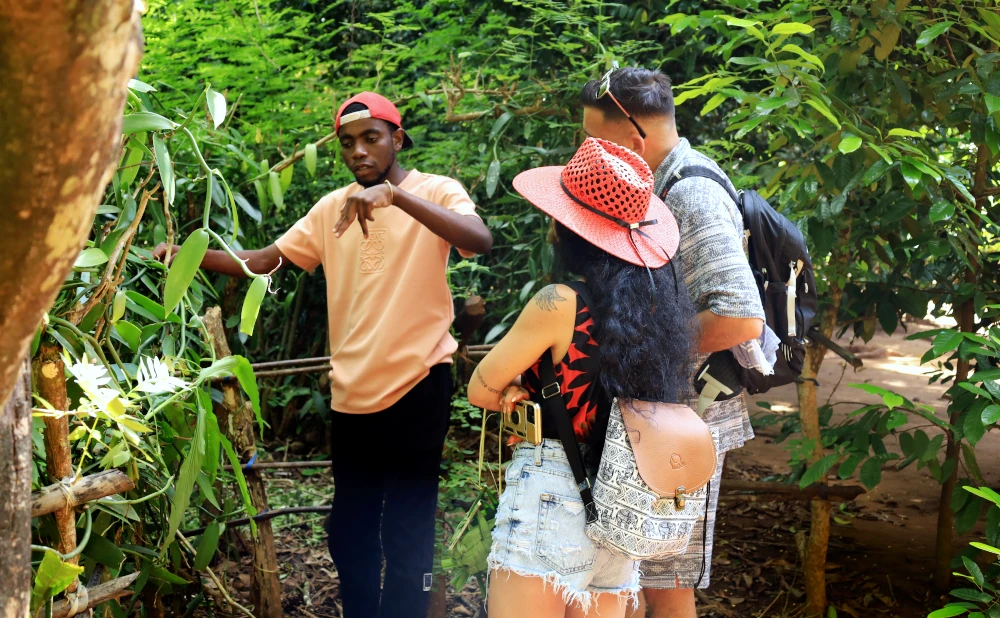
A Glimpse Into Zanzibar’s Spice History
The story of spices in Zanzibar is centuries old. The island became a hub for the spice trade in the 19th century when Omani Arabs established vast plantations. Cloves, nutmeg, and cinnamon were exported worldwide, earning Zanzibar its title as the “Spice Island.”
Today, many of these farms are still locally owned, and the same traditional methods are used. This rich heritage makes a spice farm tour not just a fun outing — but also a cultural journey into Zanzibar’s fascinating past.
What to Expect During Your Spice Tour
When you arrive at the spice farm, you’ll be greeted with warm smiles and fresh coconut water straight from the shell. Then, your guide will lead you through the lush plantation, stopping frequently to show you various plants.
You’ll learn how cloves grow on tall evergreen trees, how vanilla vines are carefully hand-pollinated, and how turmeric roots are harvested and dried. You’ll also get to smell freshly crushed cardamom pods and taste lemongrass tea or spice-infused fruits.
At the end of the tour, most farms offer a small spice market where you can buy fresh, organic spices to take home — a perfect souvenir that captures the essence of Zanzibar.
What to Bring and Wear
Because most spice farms are located in lush tropical areas, it’s best to dress comfortably. Wear lightweight clothes, comfortable shoes, and don’t forget your hat and sunscreen.
Bring a bottle of water, camera, and a small amount of cash if you’d like to purchase local spices or tip your guide.
Mosquito repellent is also recommended, especially if you’re visiting during the rainy season.
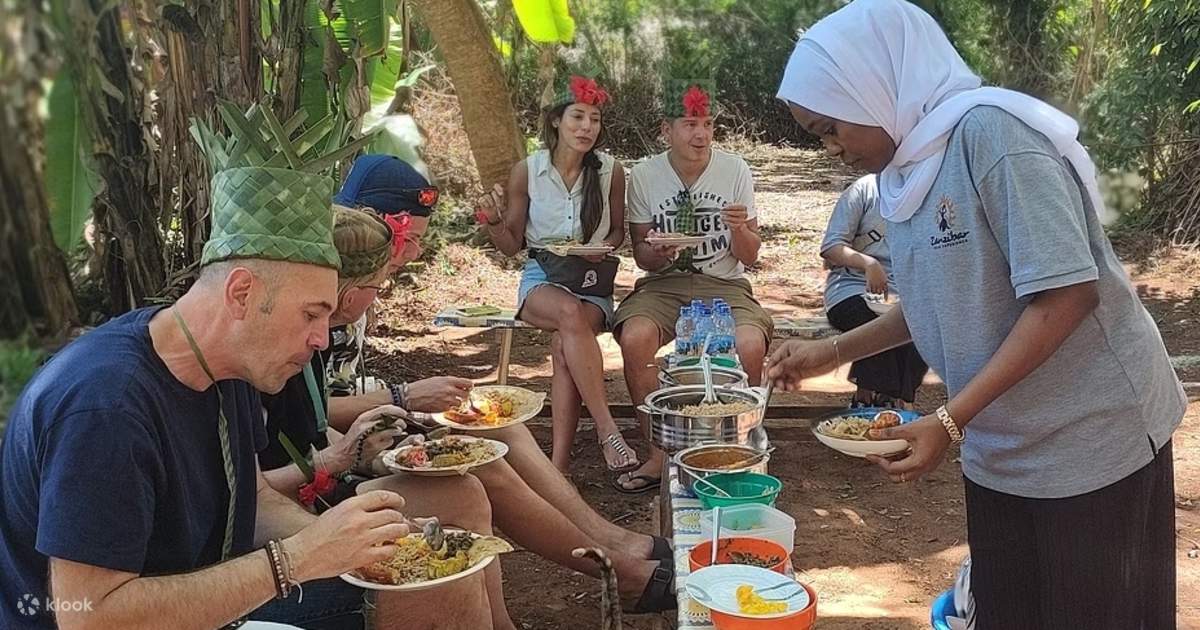
The Best Time to Visit Zanzibar for a Spice Tour
The great news is that spice tours in Zanzibar are available all year round. However, the best time to visit is during the dry seasons — from June to October and December to February.
During these months, the weather is sunny, the trails are dry, and the spice aroma in the air feels even more vibrant. Moreover, harvesting often happens in these seasons, meaning you’ll see farmers actively working in the fields.
If you visit during the green season (March to May or November), you’ll experience a more lush landscape and fewer tourists — perfect for those who prefer a quieter, more immersive experience.

Benefits of Booking Through Unique Zanzibar Tours
When you book your spice farm experience through Unique Zanzibar Tours, you’re not just signing up for a typical tour — you’re choosing authenticity, comfort, and cultural connection.
Our guides are born and raised in Zanzibar, deeply knowledgeable about the island’s agricultural traditions, and passionate about sharing them with visitors. We ensure that every tour directly supports local farmers and promotes sustainable tourism.
Additionally, our packages often include transportation, guided tours, and optional lunch experiences featuring spice-infused Swahili dishes — so you can taste the very spices you just learned about.
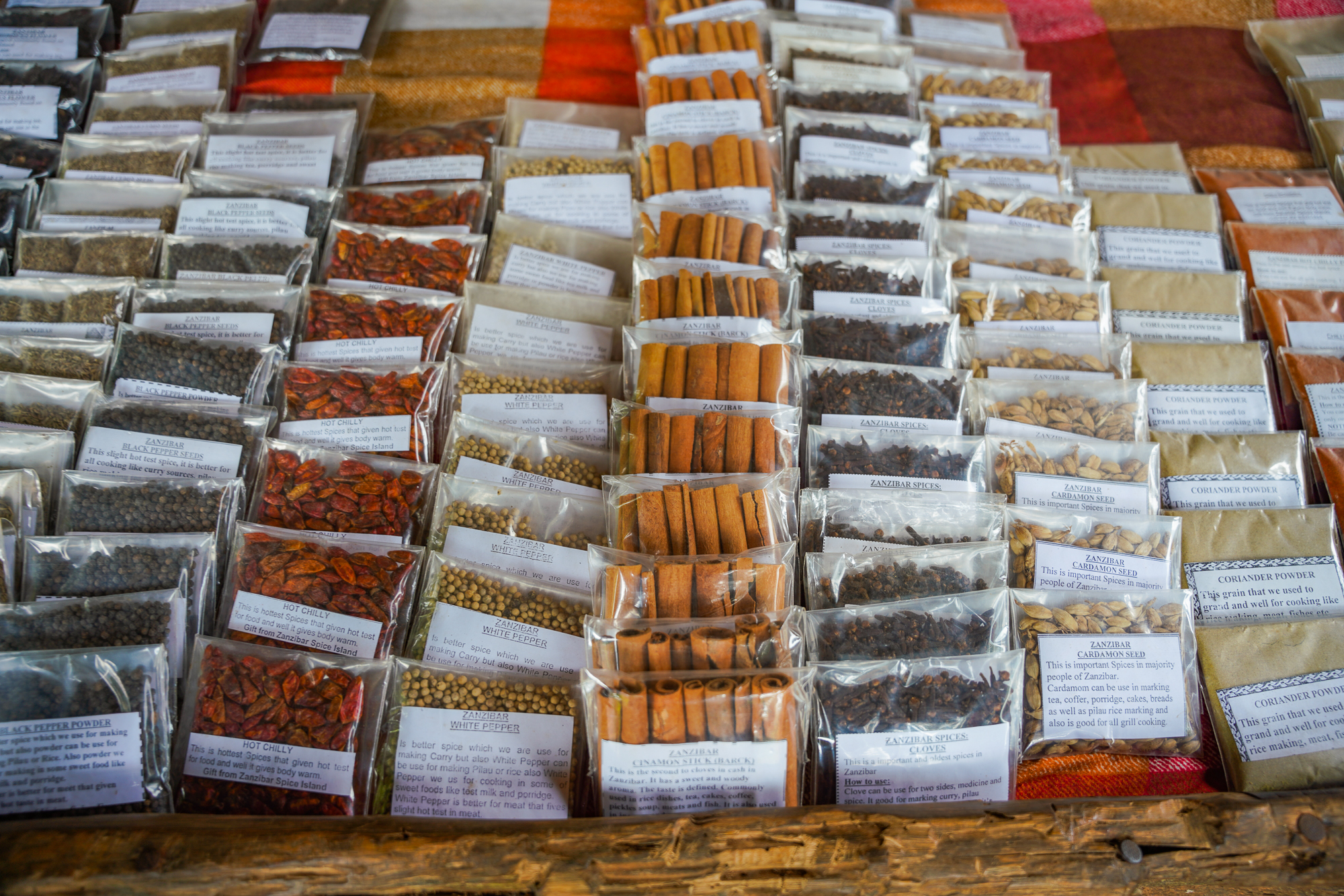
Why Spice Tours Are Perfect for Couples, Families, and Solo Travelers
Spice tours are one of Zanzibar’s most inclusive and engaging activities. Whether you’re traveling solo, with your partner, or as a family, there’s something for everyone to enjoy.
Couples often find the tours romantic, walking hand in hand through tropical gardens and sharing exotic flavors. Families love the educational aspect — children can see, smell, and taste the plants, making learning fun and interactive.
For solo travelers, spice farms offer a chance to connect with locals and other visitors in a friendly, relaxed environment.
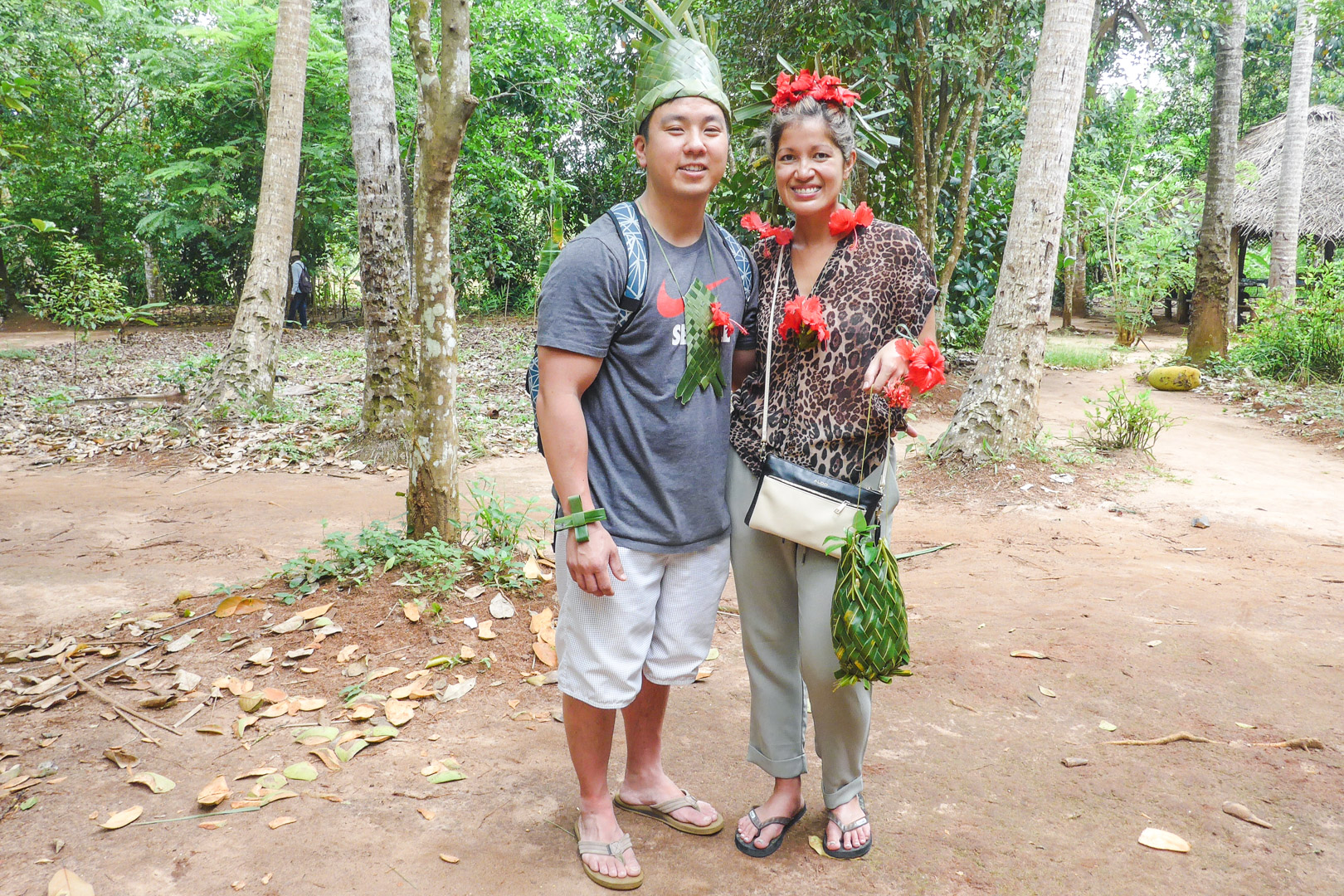
Spice Cooking Experience – From Farm to Table
Some authentic spice farms in Zanzibar offer an additional experience — a spice cooking class. Here, you’ll join local chefs to prepare Swahili dishes using freshly harvested spices.
Imagine grinding cloves and cinnamon into curries, blending turmeric into coconut sauces, or brewing masala tea straight from the source. These hands-on sessions turn your visit into an unforgettable culinary adventure.
It’s one thing to see where spices grow — it’s another to cook with them right after picking them from the farm.
Tips for Making the Most of Your Tour
To make your spice tour even more memorable:
-
Go early in the morning to enjoy cooler temperatures and fewer crowds.
-
Ask lots of questions — the guides love sharing stories and fun facts.
-
Take photos of the plants, but don’t forget to simply enjoy the moment too.
-
Try the fresh fruits offered at the end of the tour — they often include mango, pineapple, and coconut.
-
Support local farmers by buying a few spices directly from the source.
Cultural Connection and Local Impact
One of the best things about authentic spice tours is their impact on the local community. Your visit helps sustain small-scale farmers, provides jobs for local guides, and encourages eco-friendly farming practices.
When you choose Unique Zanzibar Tours, part of your tour fee goes directly to the local communities that keep this tradition alive. This means your experience not only enriches your life but also supports the people who make Zanzibar so special.
Why This Tour Is Truly Unique
An authentic Zanzibar spice tour isn’t just about spices — it’s about stories, people, and traditions. You’ll meet friendly farmers, learn how different spices influence Zanzibar’s cuisine and culture, and experience hospitality that feels genuinely warm and heartfelt.
Many visitors say the spice tour was one of the most memorable parts of their Zanzibar trip — even more than the beaches. It connects you with the land and its history in a way few other activities can.
Final Thoughts: A Journey Through Flavor and Culture
The Authentic Zanzibar Spice Farm Tour is more than a sightseeing trip — it’s an exploration of culture, flavor, and nature. From the moment you step into the plantation, every scent, color, and story invites you to discover the true heart of Zanzibar.
Whether you’re a food lover, a culture enthusiast, or simply looking for a meaningful experience, a spice tour is an essential part of your Zanzibar journey.
Book your authentic experience today with Unique Zanzibar Tours, and let the island’s spices awaken your senses like never before.

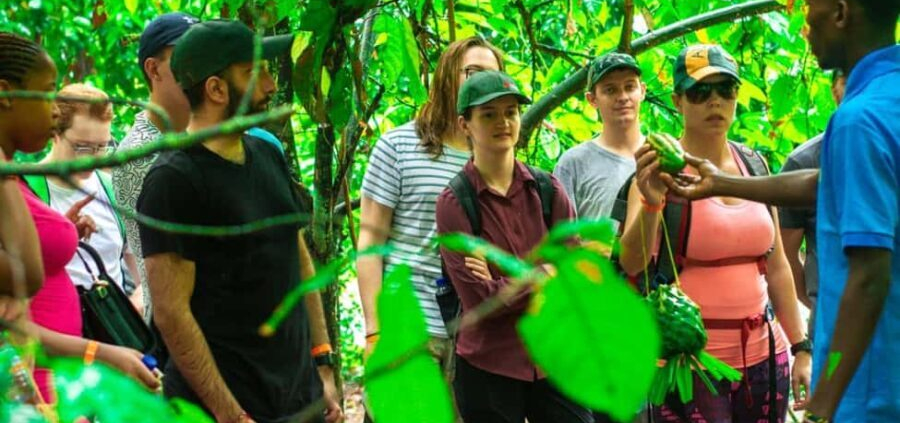

Leave a Reply
Want to join the discussion?Feel free to contribute!